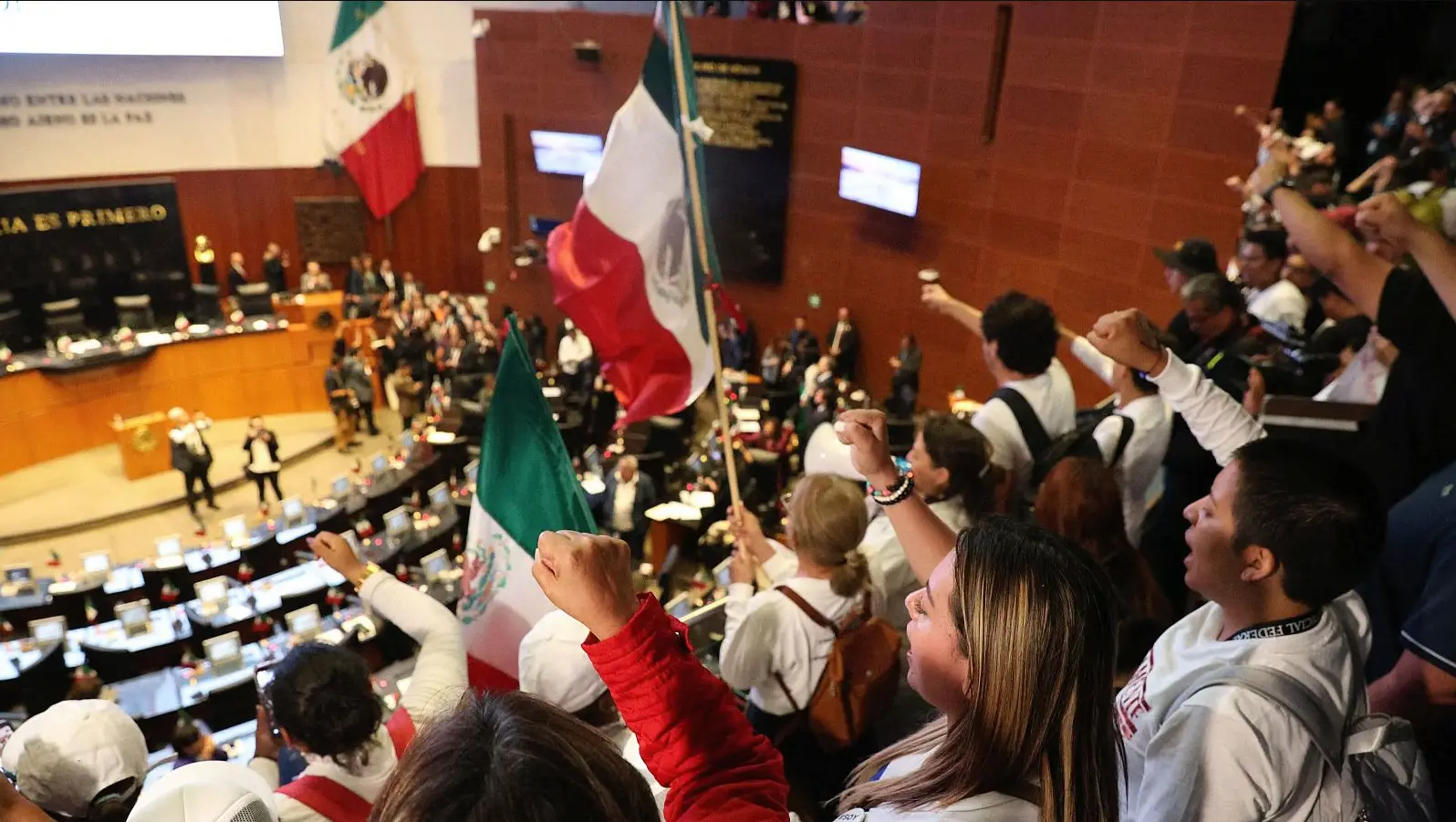The Mexican Congress, with a newly renewed composition, approved the law for the so-called judicial reform in September, which mandates that judges across the country will be “popularly” elected. The bill first passed in the Chamber of Deputies, and the Senate approved it thanks to a defector, Senator Miguel Ángel Yunes Márquez, who left the National Action Party (PAN), for which he had been elected, and joined the ruling bloc, giving the government the crucial vote needed for a majority.
This system of “popular election” for all judges in the country—1,650 federal judges and over five thousand state judges—exists nowhere else in the world. In Latin America, only Bolivia elects its three high courts through popular vote, a mechanism that has proven a repeated failure over two elections. On one hand, most citizens either cast blank ballots or spoiled their votes; on the other, the quality of those elected has been notoriously poor.
But this latter point doesn’t matter to those advocating for the so-called “popular election” of judges, dressing it up as a supposedly democratic move. What they aim to do is exert political—or more precisely, partisan—control over the appointment of those who will administer justice. This is exactly what has happened in Bolivia and in other countries with limited forms of popular judge elections.
The mobilization and protests of judges, magistrates, and judicial staff, joined by university students, against the reform do not seem to have concerned the government. Observations and concerns expressed by the United States and Canada—Mexico’s trading partners who expanded cooperation through the USMCA signed in November 2018—were dismissed by the Mexican government as intrusions on its sovereignty. Warnings from organizations like the United Nations and Human Rights Watch (HRW) were similarly ignored.
The UN Special Rapporteur on the Independence of Judges and Lawyers emphasized the importance of “non-political appointment procedures, strictly tied to quality and professional merit,” and the rapporteur, Margaret Satterthwaite, addressed Andrés Manuel López Obrador at the end of July, pointing out “the risk that judicial candidates may seek to please voters or campaign sponsors to increase their chances of reelection, rather than making decisions based solely on principles and legal norms.”
HRW has been emphatic about Mexico’s ongoing reforms, stating that they would “severely affect judicial independence and violate international human rights standards designed to ensure that everyone receives a fair hearing in court.”
Judicial independence at stake
When the need for independent judges and magistrates is raised, it refers to a clearly political issue. Independent judges are not so much needed to rule on divorce cases or evictions due to non-payment. Judicial independence is most crucial in cases where power is involved.
This power can be economic, but it is often political. In the traditional framework of the three branches of government, the judiciary is tasked with overseeing the legality of government actions—actions taken by the other two branches of government. It is in this role of monitoring power that judicial independence is tested because, without independence, there will be no control over the exercise of power.
Through the “popular election” of judges, the ruling party or coalition, as seen in Bolivia, reserves the task of selecting candidates, either formally or informally. Thus, the governing party secures, from that point on, the absence of judicial oversight over its decisions and actions.
This is the ideal scenario for any authoritarian government. In fact, in Latin America, judicial oversight of government actions is a very recent trend. In Mexico, the Supreme Court has paved the way to fulfill its constitutional role, with restraint and well-founded reasoning, for example, by blocking the transfer of public security responsibilities to the military.
This “novelty” is always inconvenient for rulers who seek free rein—meaning, acting above the law—to do as they see fit or find convenient. Morena, the ruling party in Mexico, believes it has found the desired formula, and Claudia Sheinbaum—the first woman to become the country’s president—will enjoy it.













